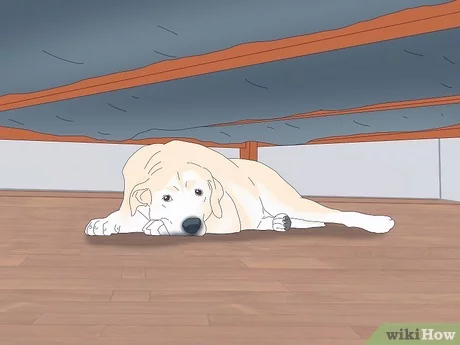Why Does My Dog Nibble
Why Does My Dog Nibble?
Dogs are known for their playful nature and curious behavior. One of the most common habits that dogs exhibit is nibbling or chewing. Whether it’s their toys, shoes, or even furniture, dogs just can’t resist the urge to nibble on things. As a dog owner, you might have wondered why your furry friend has this habit. In this article, we will explore the reasons behind why dogs nibble and what you can do to prevent it.
Reasons Why Dogs Nibble
1. Boredom
Dogs who are left alone for long periods of time tend to get bored easily. To pass the time, they may start nibbling on anything they can find around them. This is especially true for puppies who have a lot of energy and need regular exercise and playtime.
2. Teething
Just like human babies, puppies go through a teething phase where their adult teeth start growing in. During this phase, puppies experience discomfort and pain in their gums which makes them want to chew on things to relieve the pain.
3. Anxiety
Dogs who suffer from anxiety or separation anxiety may start nibbling as a way to cope with their stress and anxiety. This type of nibbling is often accompanied by other symptoms such as excessive barking, destructive behavior, and restlessness.
4. Hunger
Dogs who are not getting enough food or nutrients may resort to nibbling as a way to satisfy their hunger pangs.
5. Curiosity
Dogs are naturally curious creatures and love exploring new things with their mouths. They may start nibbling on objects out of curiosity without realizing that it’s not appropriate behavior.
6. Attention-Seeking Behavior
Some dogs may start nibbling as a way to seek attention from their owners or other people around them. They might nibble on shoes or clothing items to get someone’s attention.
Preventing Nibbling Behavior
1. Provide Appropriate Chewing Toys
One of the best ways to prevent nibbling behavior is to provide your dog with appropriate chewing toys. These toys should be durable and safe for your dog to chew on. You can also freeze some of these toys to provide extra relief during teething phases.
2. Regular Exercise
Regular exercise and playtime are important for keeping your dog mentally and physically stimulated. This will help prevent boredom and reduce the likelihood of nibbling behavior.
3. Training
Training your dog can also help prevent nibbling behavior. You can teach them commands such as “leave it” or “drop it” to discourage them from nibbling on inappropriate objects.
4. Consistency
Consistency is key when it comes to preventing nibbling behavior. Make sure everyone in the household is on board with training and enforcing rules consistently.
5. Attention and Affection
Dogs who feel loved and appreciated are less likely to exhibit destructive behavior such as nibbling. Make sure you give your dog plenty of attention, affection, and positive reinforcement when they exhibit good behavior.
In conclusion, dogs nibble for a variety of reasons including boredom, teething, anxiety, hunger, curiosity, and attention-seeking behavior. Providing appropriate chewing toys, regular exercise, training, consistency, and attention can all help prevent this behavior. Remember that every dog is unique and may require different forms of intervention to curb their nibbling habits. With patience and perseverance, you’ll be able to help your furry friend kick this habit for good!



